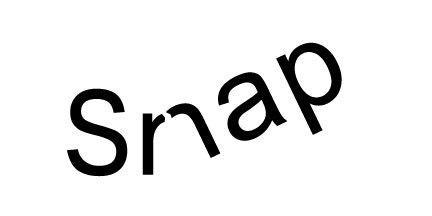
Almost every language on the planet includes words that sound like the things they describe. Crash, yawn, glug... speech is just full of these onomatopoeias. And because they have their root in real things they're often easy to identify. Even a non-native speaker might recognise the Hindi " achhee" (a sneeze) or the Indonesian "gluk" (glug). Because these onomatopoeias are so widely encountered, easy to pick up, and convey information might they be the first form of language?
That's the argument presented in a recent paper published in Animal Cognition. It points out that our ancestors would have begun encountering more and more noises that we could repeat. Tool use/manufacture in particular, with its smashes and crashes, would be a prime source of onomatopoeias. Mimicking these sounds could have allowed early humans to "talk" about the objects; describing goals, methods, and objects. Might handing someone a rock and going "smash" been a way to ask them to make a tool? Perhaps different noises could even refer to different tools.
Ok, that last bits probably a bit too speculative. But there may be something to the rest of it. After all, being able to mimic noises could have some major benefits. Humans are good at extracting information from mimicked sounds. They also trigger "mirror neurons" - parts of the brain that fire when we observe other people doing something - allowing us to repeat those actions. Seeing someone hold a rock a certain way and saying "smash" could have helped our ancestors teach the proper way to smash. But the biggest benefit would be the fact that you can communicate about these objects without seeing them. Having a sound for a tool would allow you to ask someone for it, even if they didn't have it on them.
Given these advantages, it's easy to imagine how evolution would have favoured people who mimicked noises. Over time, this would have driven the development of more and more complex communication; until language as we recognise it emerged. Following this narrative, you can see (or maybe hear) how an a human ancestor with almost no language capability gradually developed it via mimicry.
But of course, just because you have a rather nice narrative doesn't make it true. Whilst we might be quite good at mimicking noises, how do we know our ancestors are? After all, part of our ability to mimic comes from the fact we can make a large number of sounds. Which is something we likely developed as a result of language. Even our anatomy has changed to help us speak. How do we know our non-speaking ancestors would have been able to mimic the natural world well enough for this hypothesis to work? Additionally, language has made us exceptional vocal learners. We can pick up new sounds and words very easily. Surely this contributes to our proficiency with onomatopoeias. Yet many primates aren't as good at vocal learning as we are.
Of course, many of those criticisms don't outright refute the hypothesis. They just point out that we don't have enough evidence to view it as anything more than an interesting idea. Nevertheless, it is an interesting idea. And an intuitively appealing one. If more evidence can be gathered in support of it then it might be worth considering.
Until then I'd recommend you mimic the sound of crumpling up this paper and throwing it in the bin. Then actually do that.
Reference
Larsson, M. (2015). Tool-use-associated sound in the evolution of language. Animal cognition, 18(5), 993-1005.

